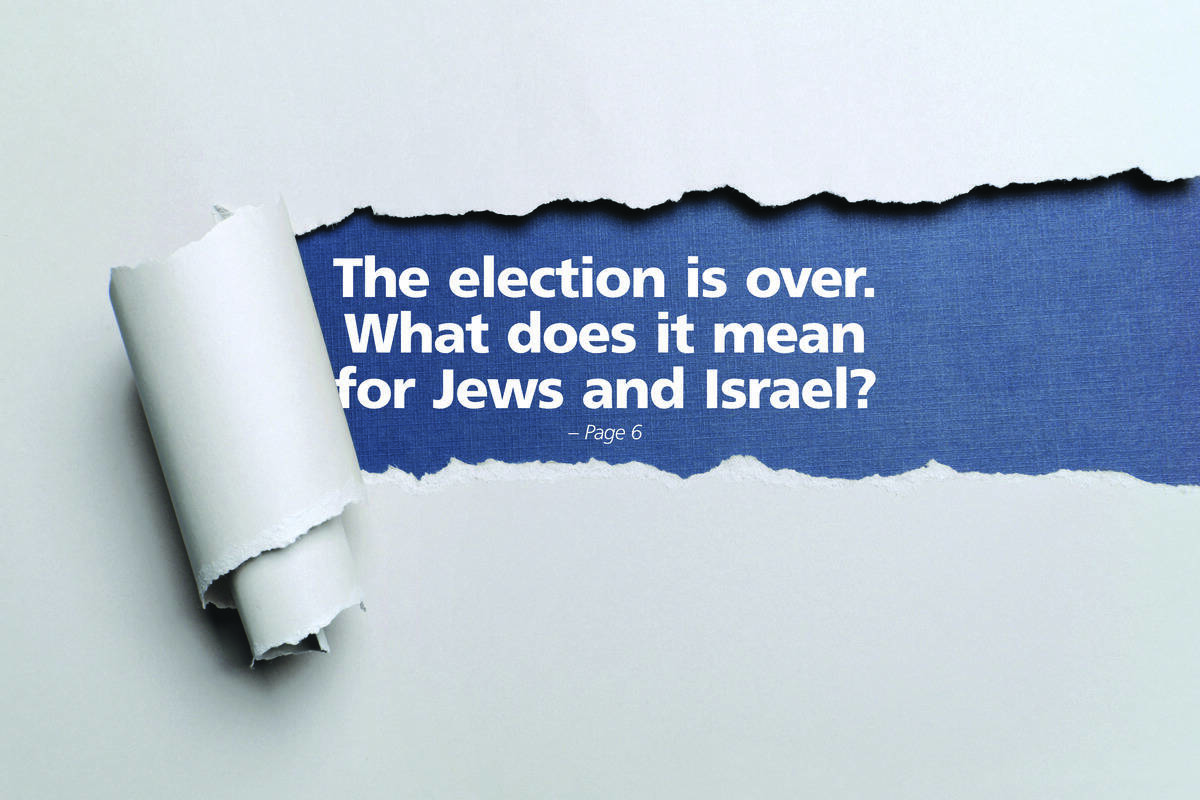(JTA) — WASHINGTON — As midnight arrived on the East Coast, it appeared increasingly likely that Donald Trump would retake the presidency — a victory that would reshape the United States and that could change its relationship with Israel while ushering in an administration whose domestic priorities do not match those of most American Jews.
That victory was confirmed early Wednesday morning when news agencies called Wisconsin for Trump, confirming that he had passed the 270 electoral vote threshold needed to win.
The tally made clear that Trump had successfully convinced a majority of voters to return him to the White House after a four-year hiatus that included an attempted insurrection by his supporters; felony convictions; and allegations of authoritarianism by officials who worked with him.
For many Jews, Hamas’ Oct. 7, 2023, attack on Israel — which launched a multi-front war and sparked a global surge in antisemitism — has shaped the campaign. The war split the Democratic Party, whose progressive wing pushed Harris to temper her support for Israel, and each campaign accused the other of being antisemitic, anti-Israel and fascist.
Trump centered his pitch to Jewish voters on his support for Israel. He pointed to his record as president, when he fulfilled a long list of Israeli government priorities — from moving the U.S. embassy to Jerusalem to brokering normalization deals between Israel and several Arab countries.
He also promised to crack down on anti-Israel campus protests, which some Jewish students have said create an antisemitic atmosphere. Trump has said he will defund universities that do not adequately protect Jewish students and will deport foreign students who participate in the unrest.
He has encouraged Israel to achieve its goals in the war. But has also called for a quick end to the war in Gaza, which Israeli Prime Minister Benjamin Netanyahu has so far resisted. He has also suggested repeatedly that Israel’s survival depends on his election, but has campaigned with and praised harsh critics of the country who endorsed him.
And he disquieted many Jews, including some of his supporters, when he said they would be partly to blame if he lost. While he made efforts to secure a historically large share of the Jewish vote, early exit polls suggested that the vast majority of Jews voted for Harris — turned off by Trump’s character as well as his domestic policies.
In the longer-term Trump — through his associations with isolationists like his running mate, Ohio Sen. J.D. Vance, and Tucker Carlson, the talk show host who recently interviewed a Holocaust denier and has become an informal adviser to Trump — appears to favor a retreat from the traditionally robust American role on the world stage.
More broadly, Trump ran a campaign promising both a restoration and an acceleration of his first administration, from 2017 to 2021, and outside groups and think tanks comprised of veterans of his presidency have proposed a massive expansion of his executive powers. He plans mass deportations of immigrants and social policies that would favor Christian influence in government. He has also vowed “retribution” against his opponents, whom he has discussed jailing, and has spoken repeatedly of “the enemy within” the country.
Polls before and on Election Day showed that most Jews opposed Trump. The majority of American Jews also do not align with his key policies, from ending federal protections for abortion to his draconian pledges on immigration.
An exception was the Orthodox community, which has shown support for Trump in large numbers. Trump acknowledged that affection during the campaign in a visit to the gravesite of Rabbi Menachem Mendel Schneerson, the late leader of the Chabad Hasidic movement.
Jewish voters across the board were bombarded by campaign materials about Israel, with the discourse especially tense in Michigan, which also has a large Arab-American population.
Trump retakes presidency, heralding new era for the United States, its Jews, and its relationship with Israel

